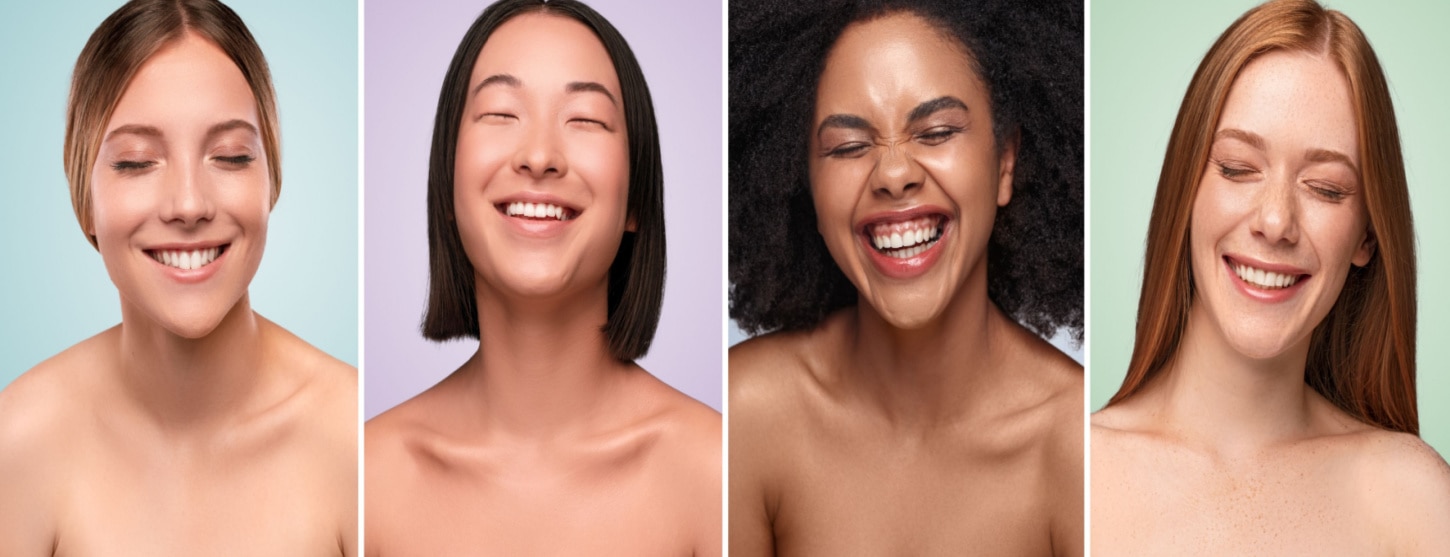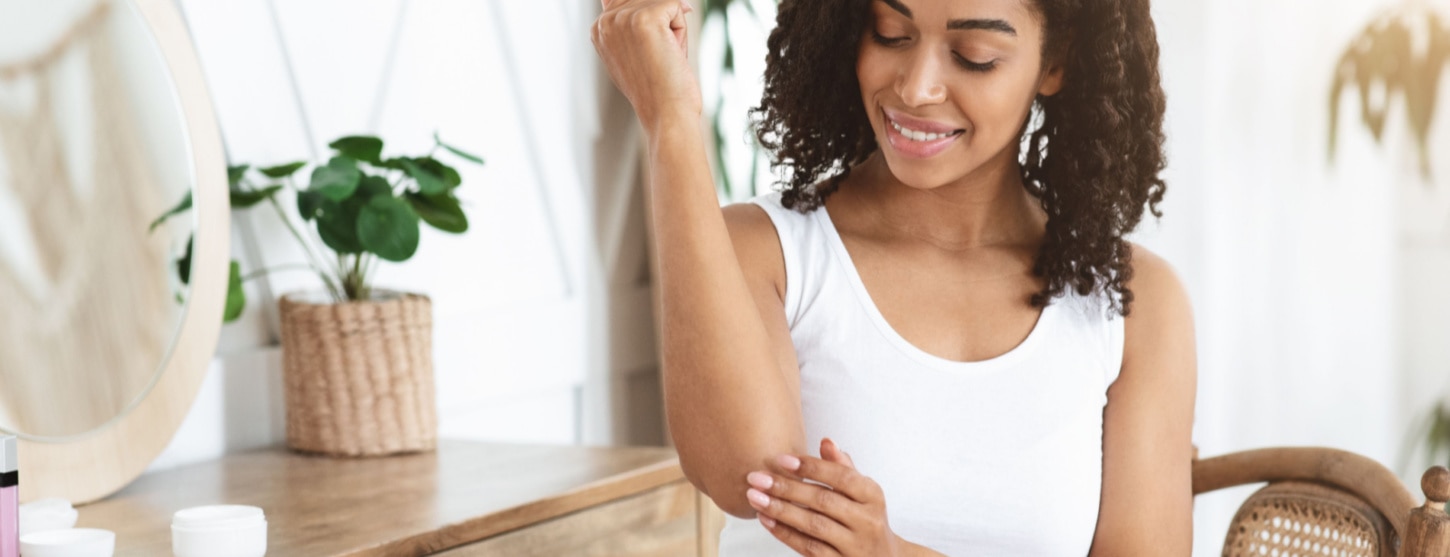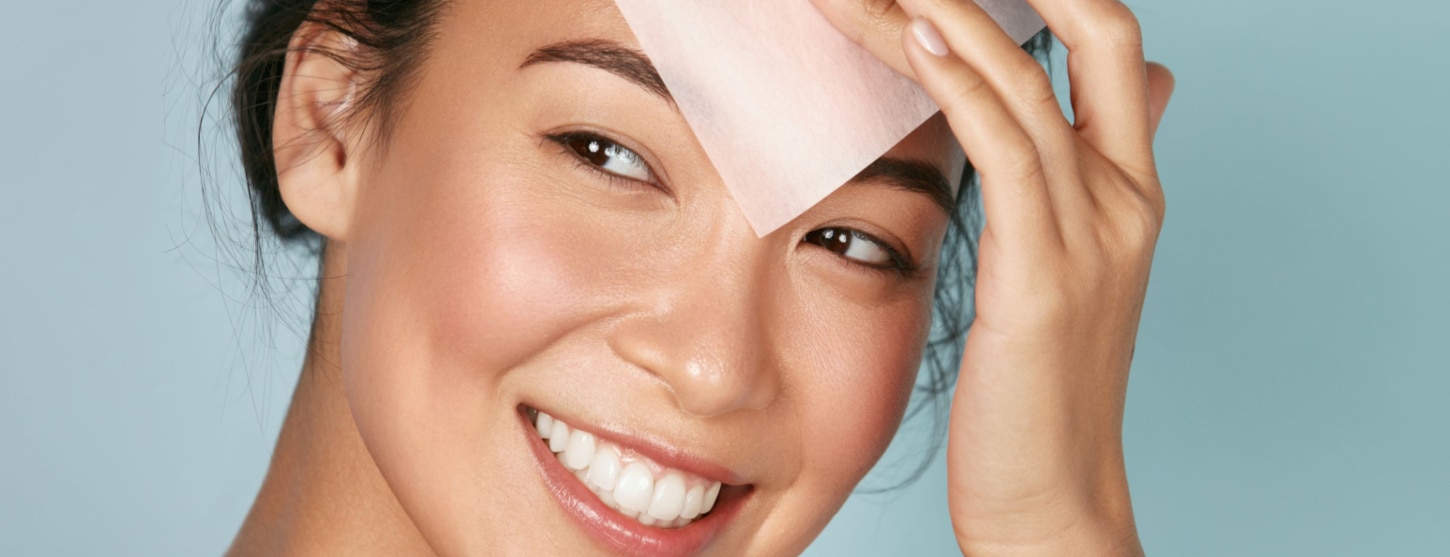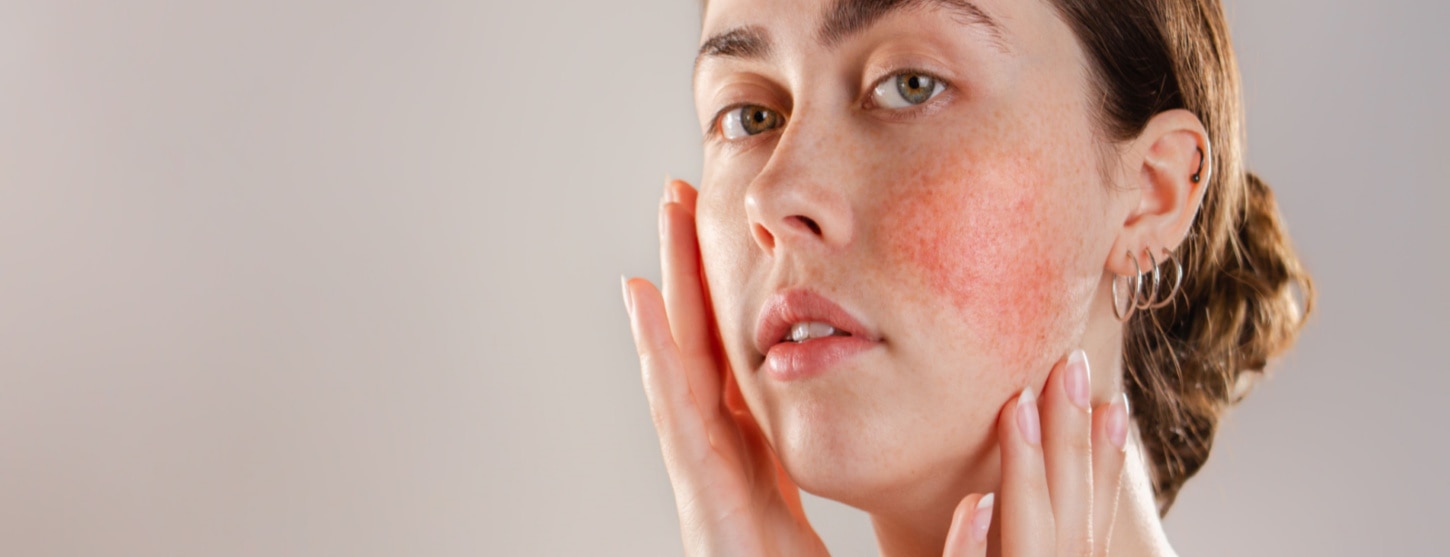15% off €25
How to care for your skin: by skin type

Water-based this, oil-based that; heavy this, light that…
Caring for your skin can be confusing at the best of times. But, if you’re not considering your skin type, your odds are stacked even higher.
Knowing your skin’s natural properties - and the routine that helps it - sets you in the best stead for a healthy glow. No more sore face days…
How do I find out my skin type?
Our “What is my Skin Type?” Quiz explains the differences and helps you work out which category you suit best.
You might find you change with the seasons, your lifestyle, or hormone fluctuations - but most people have one main type.
Here’s how to care for…
Normal skin
Okay, no skin is “normal” - but maybe you’re lucky enough not to have any extra concerns.

1
Apply an SPF daily (no matter the weather). 80-90% of skin ageing comes from the sun, so if you’re blessed with hassle-free skin, you’ll want to keep it that way.1
Choose a sun lotion that blocks UVA and UVB rays for the best protection against sun damage.
2
You should also cleanse dirt and oil away in the morning and at night.
3
Look after normal skin by avoiding strong soaps, being gentle if you shave, and moisturising if you begin to feel dry.
4
You might also include an anti-oxidant night cream (like the REN V-Cense Revitalising Night Cream) and consider supplementary collagen to prevent early wrinkles and help your skin age well.
Dry skin
Dry skin can flare up in the winter and in harsh, hot conditions.
It’s the most prone to losing moisture. So, it might not be that your skin isn’t receiving hydration - just that it can’t hold it in.

1
Make sure you’re drinking water and moisturising using an emollient (skin softener). The Balmonds range is developed for dry skin concerns like eczema and psoriasis.
2
Avoid long, hot baths and showers
3
Use a silk pillowcase when you sleep
4
Consider a humidifier
5
Blot your skin dry rather than rub it
6
Look for fatty acids in your skincare products. They help to form a hydrating, water-resistant barrier - so you can keep hydration in and soothe sensitivity.
Oily skin
All skin produces sebum (oil), but excessive amounts can contribute to acne and blackheads.
That doesn’t mean oily skin is “dirty”, but you might need to take care to prevent your pores from feeling stuffy and congested.

1
Start by washing your face at least twice a day and after exercise.
2
A toner can be an oily person’s best friend: they remove everything your cleanser might miss, penetrating and minimising large pores. Opt for one that’s not too drying and contains salicylic acid, like the Sukin Blemish Control Pore Perfecting Toner.
3
Non-comedogenic products are designed not to clog your skin - so look out for this when you shop for new skincare.
4
Oil doesn’t necessarily equal hydration, so be sure to drink plenty of water and use a moisturiser as you would with any other skin type.
Combination skin
With combination skin, you’ll have at least two different types to contend with! This can make things difficult as what soothes one part of your skin might just irritate another.

1
The best option is to use products for oily skin directly on your T-zone and use gentle, moisturising products on the rest of your face. Consider double cleansing on oilier areas.
2
You might be tempted to skip moisturising or exfoliating, but moderation is key here. Stick with a medium-to-light moisturiser morning and night.
3
Exfoliate less often (about twice per week) using a cream base instead of a scrub.
4
A water-based hyaluronic acid, like the Q+A Hyaluronic Acid Facial Serum, hydrates skin without oil-based greasiness. So, you can turn oily cheeks and forehead into a gentle all-round glow.
Sensitive skin
This type has less tolerance for skincare and cosmetic products. It can experience:
- Redness
- Blemishes
- Itching
- Flakiness
- A hot sensation

1
Care for sensitive skin by using natural, “milky” products (we like the BYBI Milk Melt Oat Vegan Cleanser) as these are gentler on the skin than foaming washes.
2
Moisturise well afterwards.
3
Also, check in on your shampoos, washing powders, and washing-up liquids.
4
Don’t forget deodorants: choose a hypoallergenic stick like this one from We Love The Planet.
Your skin during pregnancy
If you’re lucky during pregnancy, you’ll get the famous glow!
However, the hormone flux leaves your skin prone to almost any kind of change.

1
Almost all cosmetics and most skincare are safe to use, but avoid:
- Retinoids and vitamin A derivatives
- High-dose salicylic acid
- Anti-ageing creams
- Some acne creams
- Chemical sunscreens
- Hydroquinone
- Formaldehyde.2
This isn’t an exhaustive list, so consult your doctor when looking after pregnant skin.
2
Bakuchiol is believed to be a pregnancy-safe alternative to retinol.3 It stimulates collagen production, supporting firmer skin.
This wonder plant extract “affected wrinkles and pigmentation similarly” to retinol in a comparative study by the British Journal of Dermatology in 2018.4
Products like the Dr Organic Pro Collagen Plus Bakuchiol Moisturiser use bakuchiol to help reduce the discolouration you might experience.
Again, bakuchiol is considered a safe skincare product for pregnancy, but you should always speak to your GP before trying anything new
3
It’s not just your face you’ll have to contend with! Pregnancy can push your skin to its limits in other ways. Oils like the trusted Weleda Stretch Mark Oil can help ease strained skin and lighten stretch marks on your stomach, breasts, and thighs.
4
Finally, you may burn easily during pregnancy, so be sure to use pregnancy-safe sunscreen and top up every two hours.5,6
Keep at it…
Your skin can change throughout your life - so that teenage spot scrub in the cabinet might not work wonders. Still, it doesn’t have to be a losing battle!
Finding a regime takes patience, but it’s the best way to keep your body’s largest organ in prime condition.
Want to learn more? Check out our Skin, Hair & Nails Hub for a comprehensive guide to skin worries.
If you’ve got a more specific question about your skin, you can book an online appointment with our experts. It’s a tailored, one-to-one consultation – so you can discuss your unique skin health with our qualified team.
Last updated: 5 July 2022
- https://www.epa.gov/sunsafety/health-effects-uv-radiation
- https://www.womenshealthmag.com/uk/beauty/skin/a26020928/pregnancy-safe-skincare/
- https://www.womenshealthmag.com/uk/beauty/skin/a26355222/bakuchiol/
- https://onlinelibrary.wiley.com/doi/full/10.1111/bjd.16918
- https://www.nhs.uk/common-health-questions/pregnancy/are-sunbeds-safe-to-use-during-pregnancy/
- https://www.nhs.uk/live-well/seasonal-health/sunscreen-and-sun-safety/




